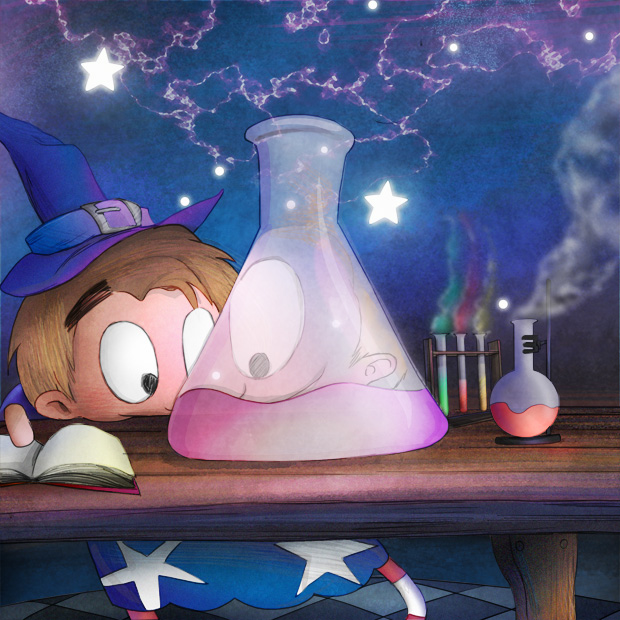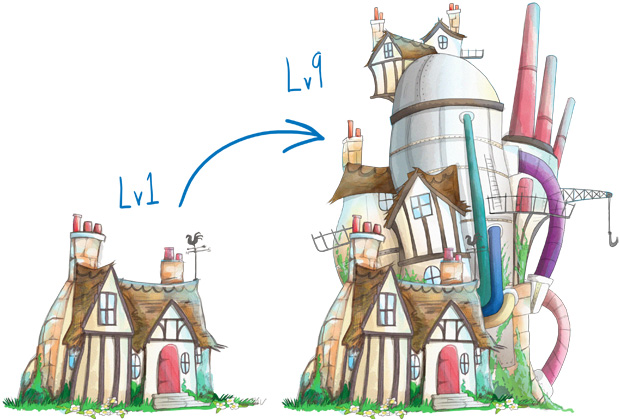The illustrations throughout this were made by Jenny Thorne, an enthusiastic supporter of the concept.
In the game, you are a potion-making witch or wizard. Potions are made pretty scientifically: you take ingredients and treat and combine them in various ways: grate them, juice them, dry them, filter them, ferment them, etc. Potions work when the right underlying set of "chemicals" are combined, and there are multiple ways of getting there. Grate and boil that berry, combining it with this bark just when the mix begins to bubble, or just leave this root to ferment in a cool dark place for a few weeks. You will start out with instructions on how to make some basic potions, but these instructions aren't very good and can be improved upon with experimentation. Potion-making, while magical, hence requires and teaches the scientific method.

The second part of the game is about gardening: your potions require lots of ingredients, and most of them are plants that can be grown. Each plant is different, needing different conditions and treatment in terms of light, water, soil, other plants around it, being planted and harvested at the right times. There's a sliding scale of difficulty here, where the plants you start out with are pretty tolerant, whereas late-game plants are difficult things that will only grow in this soil in symbiosis with this fungus, and before you can harvest any useful fruit, you need to dose the plant with this poisonous substance.
The third part is about exploration: you journey through the world to find new ingredients, new tools for potion-making, seeds, and the occasional book on potions from which you might glean new techniques. During your journeys, you come across many obstacles and opportunities, to be solved with the right kind of magic.
![]()
Since this is a game about finding things out and joyful exploration, I have a hankering to make it specifically not about violence. Hence, the game doesn't have violent solutions: if there's a dragon in the way, you can befriend the dragon, or distract it, or get past it with the right potion, or maybe get it drunk - but you can't kill it. You can't slaughter your way through the world.
To balance this out, you are equally un-killable: you start the game with a magic amulet that senses danger and teleports you back home if you are about to come to serious harm. Fall off a cliff? Teleport! About to be bitten in half? Teleport! Unfortunately, the amulet teleports just you, so anything you were carrying with you at the time is lost.
Ultimately, the ethos of this game is about science, self-determination and the value of life.
What are the obstacles? There's a two: first, the difficulty curve of the potion-making and gardening has to be carefully constructed. It should be possible to make regular progress by being sufficiently methodical, and the game should teach you to be this methodical. If the difficulty curve is too flat, you will get tired of trying out the same few things to get something to work. If it's too steep, you will give up at some point, unable to get anywhere.

Second, what is the end-game? The game relies on there being a big world full of obstacles and quests, each of which may require additional gathering or farming or brewing to complete - but at some point the quests will run out, you will know how to effectively brew each potion, and your garden will be well-run and flourishing. What happens then? Are there other mechanics that would keep your interest in playing the game indefinitely? Should the game have a victory condition? Science doesn't have a victory condition, so I'm not sure how to add one that doesn't seem out of place.

